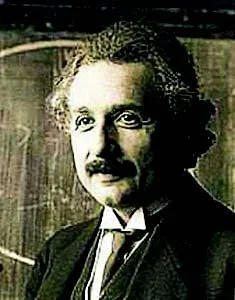According to Einstein, there are only two ways to live your life. One is as though nothing is a miracle. The other is as though everything is a miracle. Before going to the philosophy of it, let us go to the Physics of it.
The possibility with which an event happens is one out of the several possibilities it could have happened otherwise.
Therefore, whatever happens or has happened has a fractional possibility to happen, yet it beats all odds and gets to happen.
Thus, everything that is around us is a miracle because it happened with a fractional probability. This limits our choice to see any process as normal no matter how normal it appears to be.
Nothing is ordinary, no matter how ordinary it is supposed to be. Let us go to the outcomes of many different processes around us and think why did they preferentially happen the way they did. We will be left in wonder.
The tossing of a coin may give us a head when tail was equally likely to occur. At some other instance it may give us a tail when head is also equally likely to appear. The birth of a new one may be a boy when a girl was also equally likely to be born and vice-versa.
What shifts the 50-50 balance to 0-100? Who settles the outcome? Similarly, the throwing of a dice surfaces one out of six numbers which are equally likely to appear.
We walk along one among so many similar paths, connecting the two destinations. All this is pretty miraculous if we choose to think so for a while. It was absolutely reasonable of Newton to think why an apple should fall down than going anywhere else unless he discovered the gravity of the matter.
Let us make an attempt today to differentiate between sense and stupidity. If we can understand it, then there is a high possibility that we may even exchange the definitions we normally assign to them. If we know the right way of thinking, we can conquer the whole world with our imaginations.
Let me take you through a full and funny example. Suppose I am having a conversation with my friend in a room which another friend in the second room gets to hear. How did it so happen? The answer is that the sound waves cross the wall separating the two rooms to reach the ears of my distant friend.
By the same logic I can choose to ask if the sound waves can go through the wall why can’t I or my friend go through this barrier. In other words, why don’t we also fall through the floor. This is absolutely logical to ask unless we don’t discover that matter does not pierce itself.
Therefore, we should expect anything to happen unless we don’t discover reasons that prevented it to happen. In other words, whatever can happen should happen.
The philosophy behind this game of probability is to relate this concept to hope and positivity. We can start having faith in bleak possibilities in life. As Matthew says (19:26), ‘All things are possible for the one who believes’. So does the Quran say (3:49), ‘Surely in that is a sign for you, if you are believers.’ So, we learn that all entities, normal or naive, casual or strange are a miracle. Though miracle is the God’s majesty but He invites and empowers us to participate in this scheme by planting the key of faith in our hearts.
Therefore, if each one of us is living with a dream, it is actually God Himself inspiring this dream. Until quite recently, the notion of miracles would often be seen as non-scientific because these connote sudden, arbitrary and disordered events which go against the established natural laws.
On the other hand, Science is a meticulous study of the natural order, that leads to adoration of natural laws, which are sometimes enshrined as supreme.
Miracles are frequently associated with God, whereas science seeks natural explanations for natural phenomena, leaving God out of the explanatory framework. And yet today, the thought process has evolved in a manner that science has begun with a sense of miracles and an appreciation of the manner the world has chosen to exist.
Einstein has shown us the rational way to irrationality. We know of a lot of practical demonstrations in recent times confirming to his thought experiments. Keep thinking, keep sinking.
Dr. Qudsia Gani, Assistant Professor, Dept. of Physics, Govt. College for Women, Srinaga
DISCLAIMER: The views and opinions expressed in this article are the personal opinions of the author.
The facts, analysis, assumptions and perspective appearing in the article do not reflect the views of GK.






